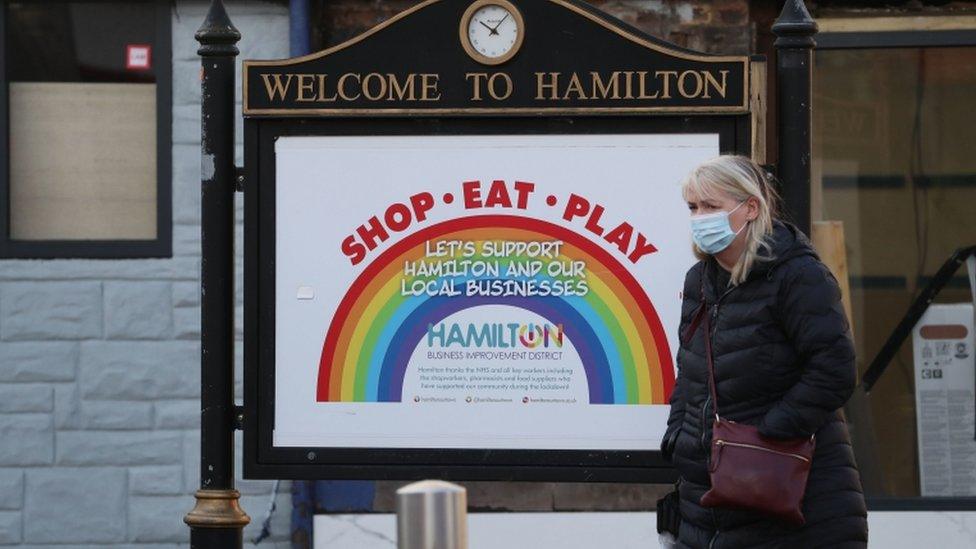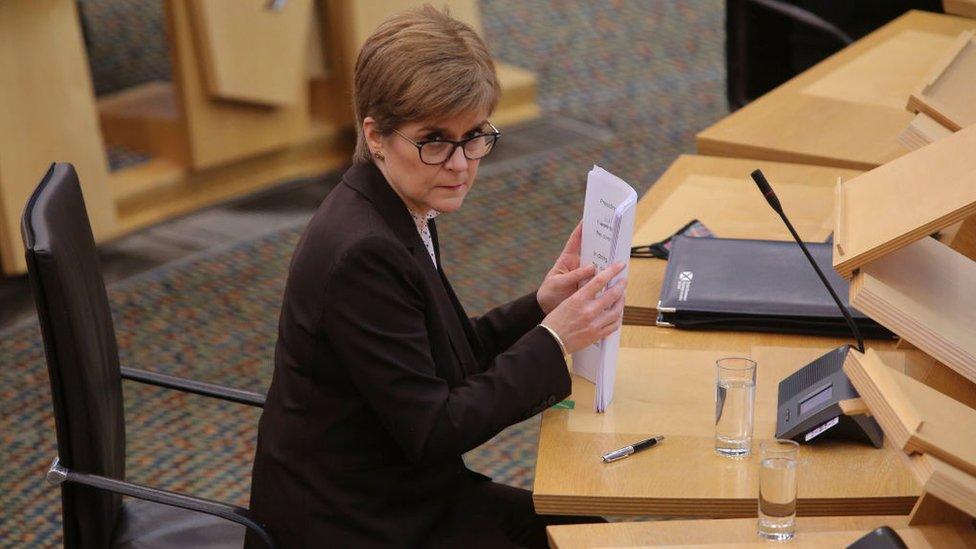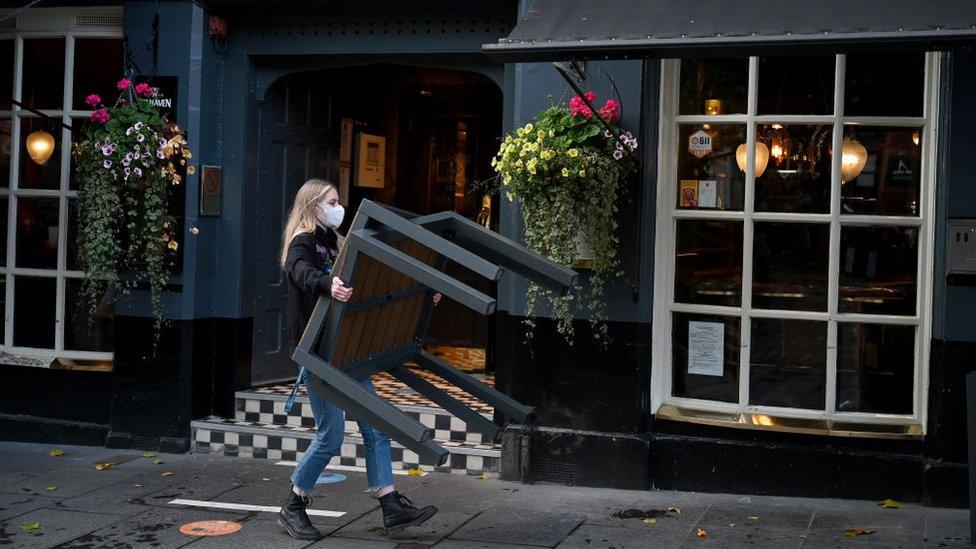Covid in Scotland: Nicola Sturgeon to confirm restriction levels
- Published
- comments

North and South Lanarkshire could have the toughest restrictions imposed - although the first minister has said she hopes this will not be the case
The levels of coronavirus restrictions to be placed on each of Scotland's 32 local council areas are to be confirmed later.
Provisional tiers published earlier this week suggested North and South Lanarkshire could both be placed in the highest level four category.
If that recommendation is confirmed, it would impose restrictions close to full lockdown on the two council areas.
Much of the rest of the country will be placed in either level two or three.
But rural areas including the Highlands, Orkney, Shetland, the Western Isles and Moray, which have far fewer cases of the virus, are likely to be moved down to level one.
This could eventually allow groups of up to six people from two households to meet in each other's homes again - although it will not happen immediately as an "extra precaution" while the country transitions to the new system.
People will still be banned from meeting in other homes in levels two, three and four.
But the aim is for schools across the country to remain open, even in any areas that have the strictest restrictions imposed.
Full details of the new five-tier system - which will also have a "level zero" at the bottom that will allow life to return almost to normal - will be outlined by First Minister Nicola Sturgeon at about 12:20 GMT.
The new rules will come into force from Monday.

The Scottish government has already published the "indicators" it will use when deciding which of the five levels of Covid restrictions each local authority area will be put into, which include levels of infection and transmission as well as hospital capacity.
It is expected that most of the central belt - which includes Glasgow and Edinburgh and already has tighter restrictions than the rest of the country - will be placed in level three, as could Dundee.
The exceptions could be North and South Lanarkshire, which may go into the highest level four category due to concerns about their high number of cases and hospital admissions - although Ms Sturgeon has stressed that this will not necessarily happen.
If the area is placed in level four, bars and restaurants would remain closed while non-essential shops would also have to shut, along with hairdressers, gyms, libraries and visitor attractions.

Ms Sturgeon will make the announcement in the Scottish Parliament ahead of first minister's questions
The leaders of both councils have warned that the move would have a "catastrophic" impact on local businesses were it to happen, and argued that level three would be more appropriate.
In a joint letter, which was also signed by local NHS and police chiefs, they said that there was "emerging clear evidence in Lanarkshire that the very steep rise has been halted and that there is an indication that cases are falling to some extent".
Placing Lanarkshire in Level 4 would have "considerable implications" for the area and beyond, they warned, with "significant impacts on health and wellbeing, public services, and business and the economy".
Their letter added: "We are very concerned that businesses - who, as noted, have already complied with all the regulation and guidance in place - will suffer potentially catastrophic impacts."
They also accused the Scottish government of being "silent" on whether additional financial support would be put in place for businesses that were required to close by level four restrictions.
Ms Sturgeon said on Wednesday that she did not want to put any part of the country under the most severe restrictions unless it was "absolutely necessary".
And she said that she "very much hoped" that she would not be putting Lanarkshire into level four.

Pubs and restaurants across much of the central belt are likely to be allowed to reopen - but will not be able to serve alcohol
Bars and restaurants across Scotland's central belt had to close on 9 October as part of a "short, sharp action to arrest a worrying increase in infections", while tight restrictions were placed on those in the rest of the country.
The new system will allow pubs and restaurants in level two areas to serve alcohol indoors again - but only with a meal and until 20:00.
In level three areas they can reopen until 18:00 but cannot serve alcohol, while at level four they will remain closed.
'Tension and anger'
Industry leaders have said that the slight easing of the restrictions on licensed premises does not go far enough, and would do little to improve the chances of businesses surviving.
Paul Waterson, of the Scottish Licensed Trade Association, said it would do "nothing at all to relive the worries, tension and anger that is felt by hospitality businesses and staff throughout the country."
He also argued that "a couple of opening hours here and there under the new system will make no difference" to the vast majority of businesses.
And the Scottish Chambers of Commerce have said there was a "clear lack of evidence" for continuing to impose such tight restrictions on the hospitality sector.

